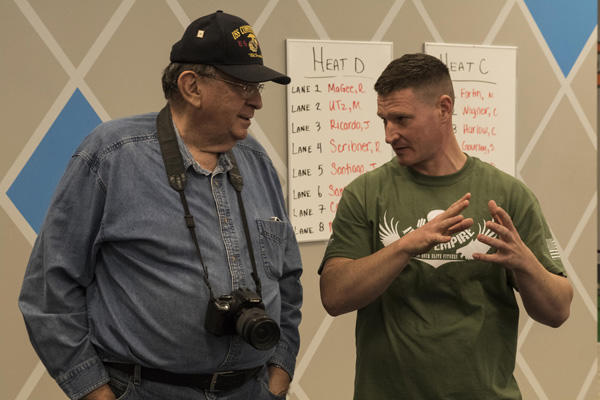Often times when civilian employers think of the skills and experience veterans bring to the private workforce, they equate the veteran's background to careers in leadership, management, process improvement, or technology. Veterans are trained to do many things, such as operate expensive and complicated equipment, make mission-critical decisions in high stress situations, work well in teams of culturally-diverse individuals, problem solve complex issue with scarce resources, and sacrifice time with family and loved ones to perform their work.
There is also a common perception among civilian employers that veterans (officer and enlisted) are either good leaders or good followers, but not both. Can someone who operated in a "command and control" style of leadership now collaborate and innovate? Can an individual who was given detailed instructions and rules for every aspect of their daily routine now be creative and work independently? Can someone who served four or 34 years in a military culture be successful in career in sales? Yes!
Employers seeking to recruit sales professionals would be well served to consider veterans. Regardless of rank, job, branch or years of service, veterans bring qualities and skills directly relevant to a business development or sales position, such as:
- Problem solving: In the military, service members are often given difficult problems and issues to solve with little planning, preparation and few resources. They learn to improvise and be creative, always focusing on completing the task. In a sales role, it is impossible to anticipate every issue, concern, or challenge a client can present. Having a strong ability to look past problems and identify solutions makes a veteran a great asset in a sales organization.
- Work independently. During their military career, service members learn how to think on their own, make decisions and work independently to solve an issue or challenge. A veteran's training in the military teaches them to trust their experience and intuition to always do what's right for the company and the mission. In a sales role, professionals must follow processes and protocol, yet also have the confidence and self-direction to use their best judgement and rely on their own skills and training to serve their clients.
- Team work. Many have said that aside from leadership, the most important lesson the military teaches is teamwork. While in the military, service members of all ranks work alongside individuals from different countries, cultures and backgrounds, all of whom are focused on one goal:"The … defense of the state and its citizens, and the prosecution of war against another state." In a sales role, these same skills empower the veteran to help motivate and inspire his or her team mates and colleagues, share solutions across the organization, and instill a belief around collaboration with clients in serving their needs and delivering on the company goals.
- Personal accountability. The military value of "Service before self," trains service members to accept full personal responsibility and accountability for their actions and those of their troops. Recognition and praise are passed to those around them, but accountability stops with them. In a sales position, it might be easy to blame delays or missed expectations on the product delivery team or someone else "back at the office." A veteran won't do this because his or her honor is tied to their personal accountability, whether they are wearing the uniform or not.
- Focus on values. A military career is not a glamourous career, by most accounts. While there is pageantry and formality of uniformed service, those who sign up for military duty do so because they align with a set of values and purpose greater than themselves. Those values remain ingrained in veterans after they separate or retire from the military. In a sales role, when a veteran can attach to the mission, values and service aspect of the process, their ability to be successful grow exponentially! Additionally, veterans in sales roles often serve as exemplary role models for their civilian peers who might be more financially-motivated.
Lauren Chess, National Recruiting Program Manager for South Carolina-based Colonial Life and Accident Insurance Company, advocates hiring veterans into sales roles in her organization. Colonial Life has more than 500 sales managers across the U.S. who work independently as entrepreneurs of their own business within the organization. Chess notes that, "While it's true that experienced insurance professionals do very well within Colonial Life's culture, in National Recruiting we strive to consider other backgrounds, skill sets, and values that aligned with ours, but don't necessarily stand out on a resume."
Chess adds that recruiting veterans adds brand value to the organization, which is client and community focused: "Most managers in our organization agree that sharing our story with men and women transitioning out of the military is not only good for business, but it's the best way to say 'thank you' to the people who risked their lives for us."
In considering your recruiting efforts targeting sales positions, include programs, marketing, and on boarding strategies unique to the military veteran's experience and skill set. The return on investment is tangible to your own company, as well as your clients'.





